
Berries
You can’t go wrong snacking on berries—especially since they’re the best food for a cold. That’s because berries—such as strawberries, raspberries and blueberries—are a hydrating source of vitamin C. “Vitamin C functions as an antioxidant and plays an important role in immune function,” explains Alex Miller, MS, RDN, the corporate dietitian at Medifast. He recommends getting your fill using fresh berries when possible: Add them to yogurt, cereal, salads or smoothies. “Have fun with it—make a parfait with low-fat yogurt, fresh berries, nuts and a sprinkle of cinnamon.”
Craving comfort food? These 50 foods help warm up cold and flu season.

Bananas
Chock-full of potassium, as well as other powerful nutrients such as fiber and vitamin B6, bananas are about as good as it gets when it comes to strengthening your immune system. Additionally, studies have found that the electrolytes in bananas have seriously impressive energy-boosting benefits, which certainly comes in handy when you’re feeling fatigued from a cold. Miller recommends adding a dollop of nut butter to a plain, sliced banana for a heart-healthy snack, or tossing some slices into your oatmeal, low-fat yogurt or unsweetened cereal. You can also add them to smoothies and baked goods, like muffins, pancakes and bread.
Can 7UP cure a cold? Here’s the truth about mom’s old-school remedy.

Eggs
Eggs might not be the first food you think of when you’re feeling under the weather, but experts agree that they’re one of the best foods for a cold. They’re loaded with protein, which is an important nutrient to have in your body when you’re fighting an illness of any kind, explains Roger E. Adams, PhD, Houston-based dietitian and nutritionist and founder of eatrightfitness.com. And don’t skip out on the yolk. Though the yellow part of the egg has gotten a bad reputation for being cholesterol-filled, that information is flat wrong, according to science—and the yolk happens to be where the majority of the egg’s protein lies. Yolks also contain other nutrients important for warding off illness, such as zinc and selenium, so get your fill!
Here are some yummy recipes to make when you have a cold.
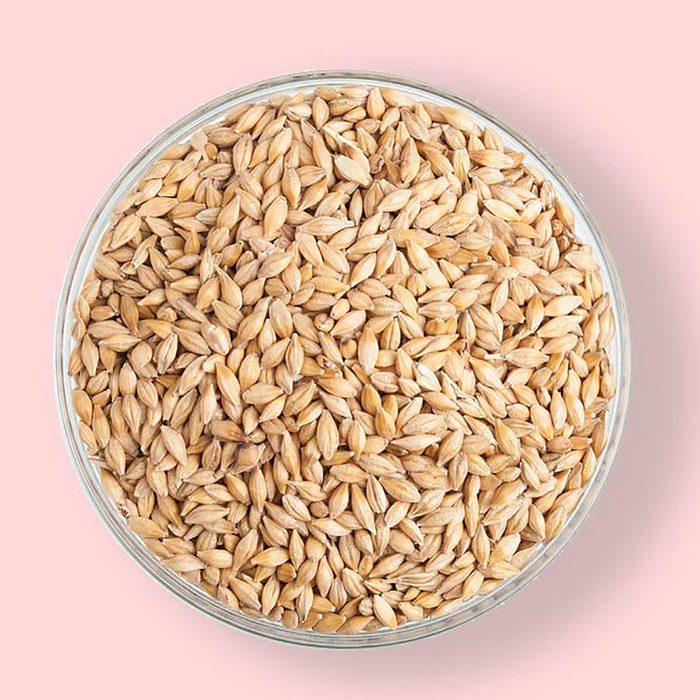
Barley
If you’ve only come across barley as an ingredient in a soup, you might not be familiar with its slew of health benefits, particularly for your immune system. “Barley is a good source of fiber and selenium, which appears to have a powerful effect on the immune system due to its antioxidant properties,” Miller says. He recommends incorporating barley into just about every savory meal you consume. “Add it into salads with fruit, vegetables, nuts, seeds, beans and fresh herbs (barley with mushrooms, spinach, cannellini beans and thyme),” he says. “It can also be used to make risottos and pilafs.” If you’re in the mood for a soup, try chicken barley, mushroom barley or vegetable barley soup. You can also have it for breakfast; simply cook and top with fresh fruit, nuts and a spice, if desired, Miller adds.
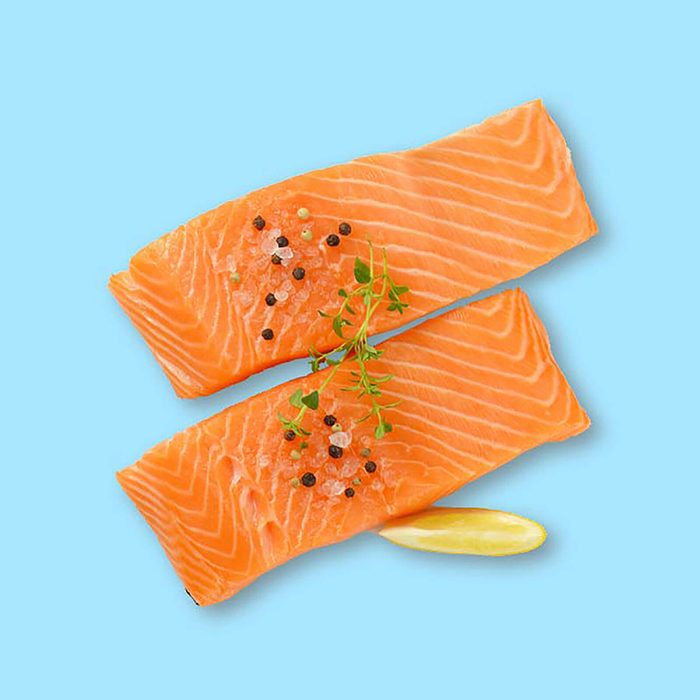
Fatty fish
When lunch or dinner time calls and you’re dealing with even the slightest hint of a sickness, fill your plate with a nutrient-dense protein like salmon or tuna. One study, published in the Journal of Leukocyte Biology, found that a diet containing DHA-rich fish oil (which is found in fatty fish), boosted the activity of a white blood cell called B-cells—an important part of the body’s immune system response. If you’re not big into seafood, or flaky fish like salmon or tuna, opt for fish oil supplements instead. You’ll still get the key benefits, plus high levels of heart-healthy mono- and polyunsaturated fats that help keep your immune system working its best.

Foods with added vitamin C
When you’re feeling sick, you may not always be in the mood to prepare food—but try and fight the temptation to order takeout. Instead, reach for vitamin C-containing foods that require relatively little-to-no prep work. “Vitamin C is a good nutrient for helping to support your body’s immune system and just so happens to be added to many foods—you’ll sometimes see it on the ingredient list as ascorbic acid, sometimes as a preservative,” says Amy Gorin, MS, RDN, owner of Amy Gorin Nutrition in the New York City area. “One of my favorite packaged foods that contain vitamin C is KIND’s Dark Chocolate Cherry Cashew + Antioxidants bar, with 20 percent of the daily value of vitamin C.”

100 percent Concord grape juice
OJ isn’t the only way to drink your vitamin C. One of Gorin’s favorite beverages to recommend for an antioxidant boost is 100 percent Concord grape juice. “It’s an excellent source of vitamin C, providing 120 percent of the daily value per serving,” she says. “The vitamin C and plant nutrients in 100 percent Concord grape juice may help promote a healthy immune system, per preliminary research.” Drink it or add it to a fruit smoothie to nurse your health.
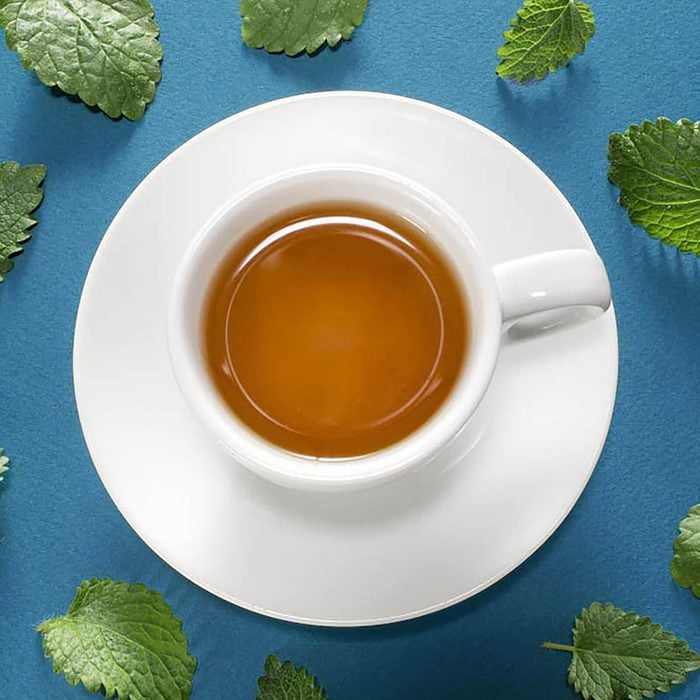
Kombucha
This trendy fermented tea is flying off the shelves of grocery stores across the country—and for good reason. It’s loaded with a myriad of essential nutrients that help keep your immune system in fighting condition, such as B complex vitamins, vitamin C and zinc. Kombucha is also full of various probiotic strains, which are good for your gut and are known for their immune-enhancing properties, explains Scott Schreiber, MS, RD, chiropractic physician and certified nutrition specialist. Sugar is used in the fermentation process, so Schreiber suggests avoiding the brands with extra added sugar, as this may decrease the effectiveness.
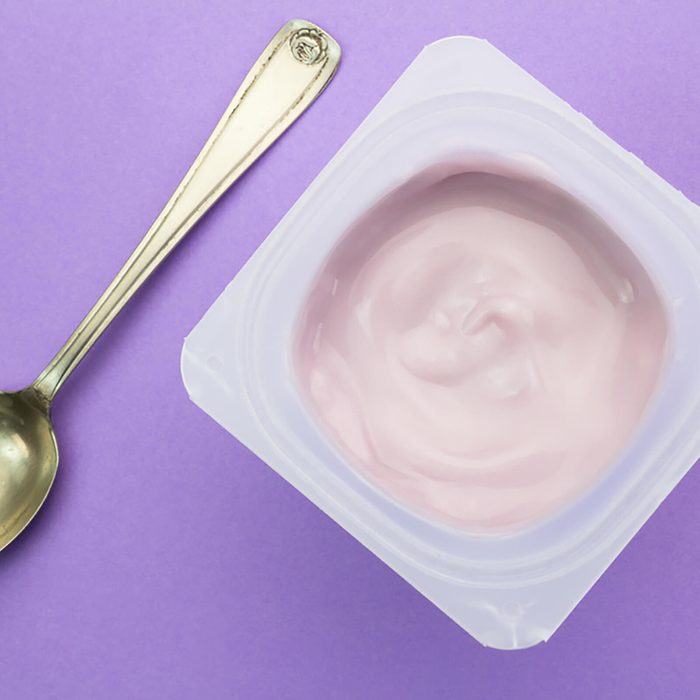
Yogurt
Yogurt is one of the best foods for a cold because it’s a good source of protein—especially Greek yogurt—which plays a role in the body’s defense mechanism, Miller explains. Choose live culture versions and you’ll get probiotics, or “good bacteria,” which may help ease the severity of colds. Be sure to also look for yogurts that are fortified with vitamin D, as Miller notes that low vitamin D levels have been linked to an increased risk for the cold and flu. If you’re not feeling well, he suggests opting for a single-serve container in a mild flavor that you can tolerate, such as vanilla. “Top with nuts or seeds and fresh berries for a boost of essential fatty acids, fiber and vitamin C.”
Our Test Kitchen found the best yogurt brand you can buy.

Nuts and nut butters
In any form—pure or pureed—nuts are an excellent way to increase your levels of dietary protein as well as add some essential fats into your diet when you are sick. Plus, nuts and seeds are excellent disease fighters. “Essential fats can help the skin and mucous membranes stay healthy, which helps ward off invaders from getting into your body,” explains Dr. Adams. “Additionally, nuts and seeds are high in selenium vitamin D, zinc and copper—all of which are key ingredients to maintaining and boosting your immune system.”
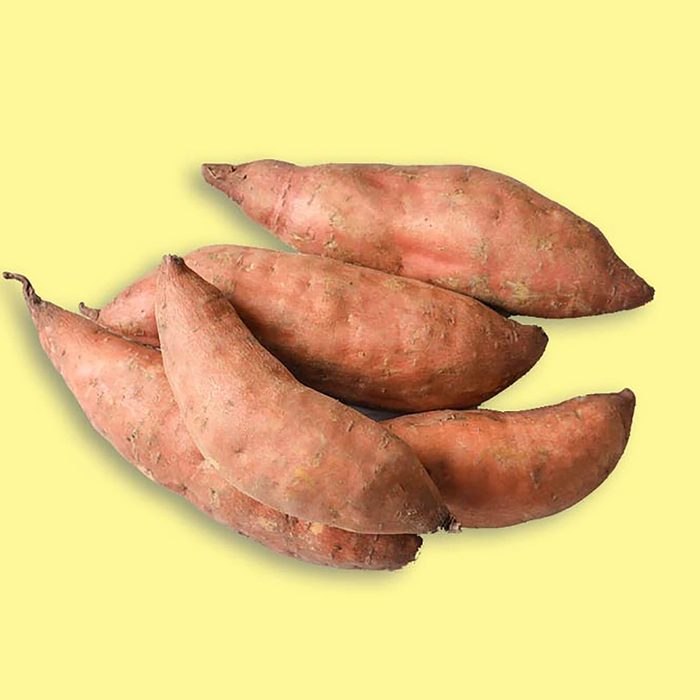
Sweet potatoes
You probably already know that sweet potatoes—possibly nature’s healthiest vegetable—are a great addition to many meals. But did you know that they’re also loaded with immune system-strengthening nutrients, like vitamin A? “One medium sweet potato provides over 100 percent of your vitamin A for the day, a vitamin that helps regulate the immune system and protects from infections by keeping our skin and internal tissues healthy,” says Miller. Not in the mood for a mushy potato when you’re feeling sick? Try sweet potato toast! Miller’s go-to recipe: Slice a sweet potato into ¼-inch long vertical slices, turn your toaster up to high and toast your slices two to three times or until tender. Top your toast with whatever sounds good to you—nut butter, banana slices and cinnamon; nut butter and raisins; a poached egg and mashed avocado; black beans and cheese; grated parmesan and fresh basil. The options are endless.
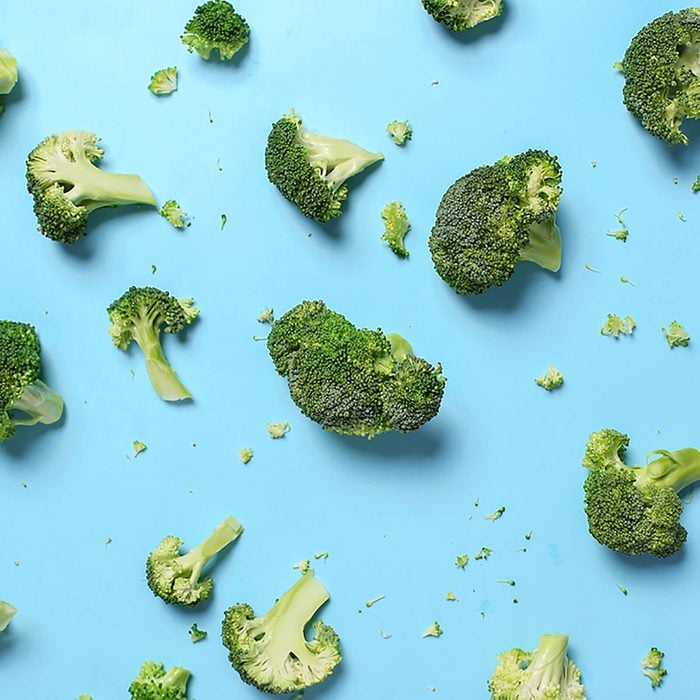
Cruciferous vegetables
Sure, you might not feel like a veggie stir-fry when you’re battling a stuffy nose and itchy throat, but cruciferous veggies like broccoli, bok choy and kale are loaded with nutrients that help you get well. “Broccoli, in particular, contains vitamin E, an antioxidant and phytochemical that’s great for fighting colds and flu,” says Schreiber. He suggests getting your fill however you can—be it in a soup, salad or raw with a little dressing or Greek yogurt dip.

Ginger
This flavorful flowering plant is good for more than just seasoning. “Ginger is also known for its ability help ease cold symptoms by relieving congestion and stimulating circulation in the body,” says Miller. “It has an active compound called gingerol, which is known for its antimicrobial properties.” Take a look at ginger’s many health benefits. He recommends sprinkling ground ginger on roasted carrots, sweet potatoes or pumpkin or buying unsweetened ginger tea, which will also help ease a sore throat.

Water
There’s a reason everyone from your mother to your doctor tells you to stay hydrated when you’re feeling under the weather. Our body is made up of nearly 60 percent water—which means it requires a ton of the stuff to run properly. “When we become dehydrated, all of our body’s systems suffer, especially the immune system,” explains Dr. Adams. “For this reason, water and other non-caloric beverages are a must when fighting illness.” Sugar-free add-ins or even squeezes of citrus fruits may make water taste better when ill and will encourage you to drink more. Coffee and tea are fine, too, though your stomach might not tolerate them well when you’re feeling sick.